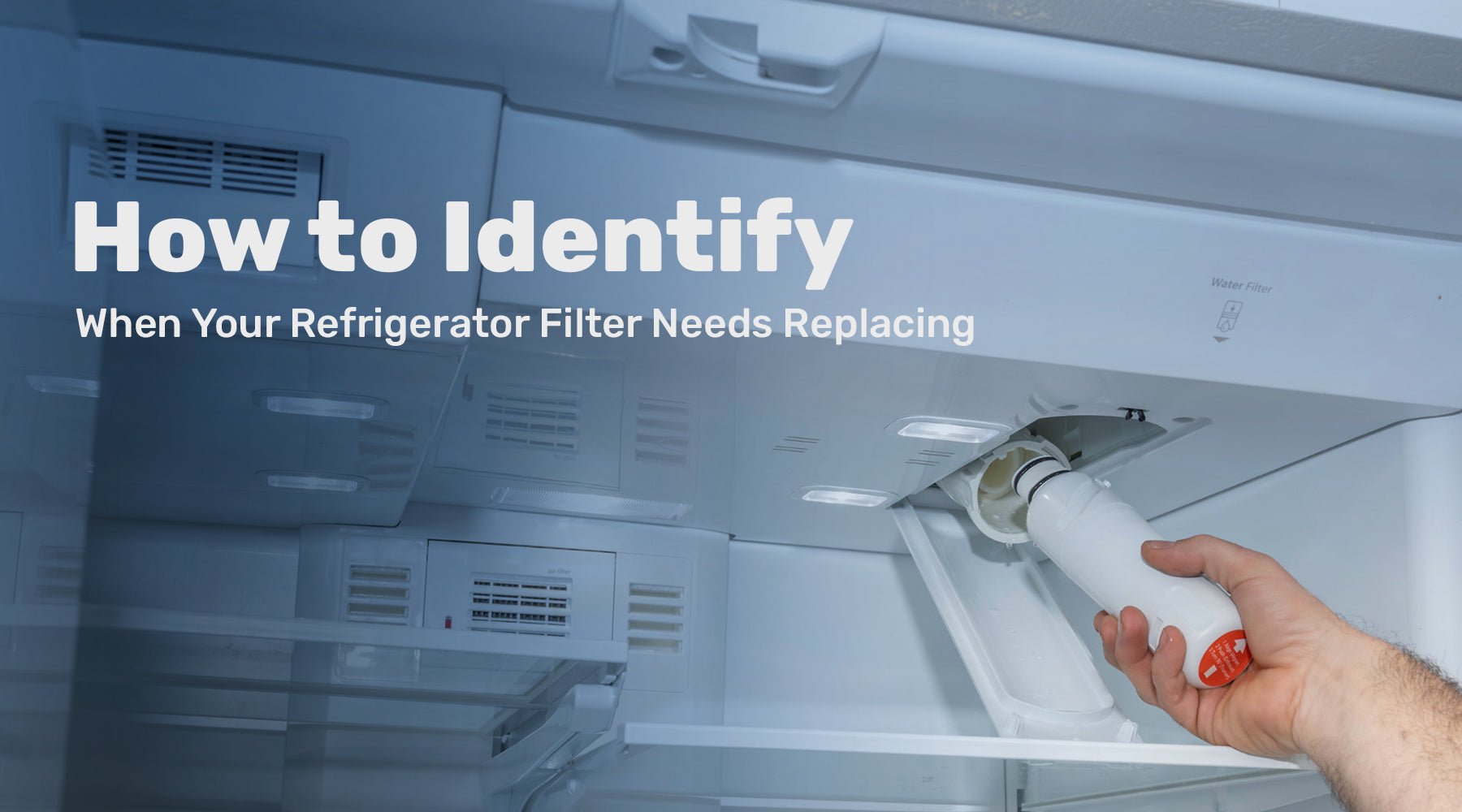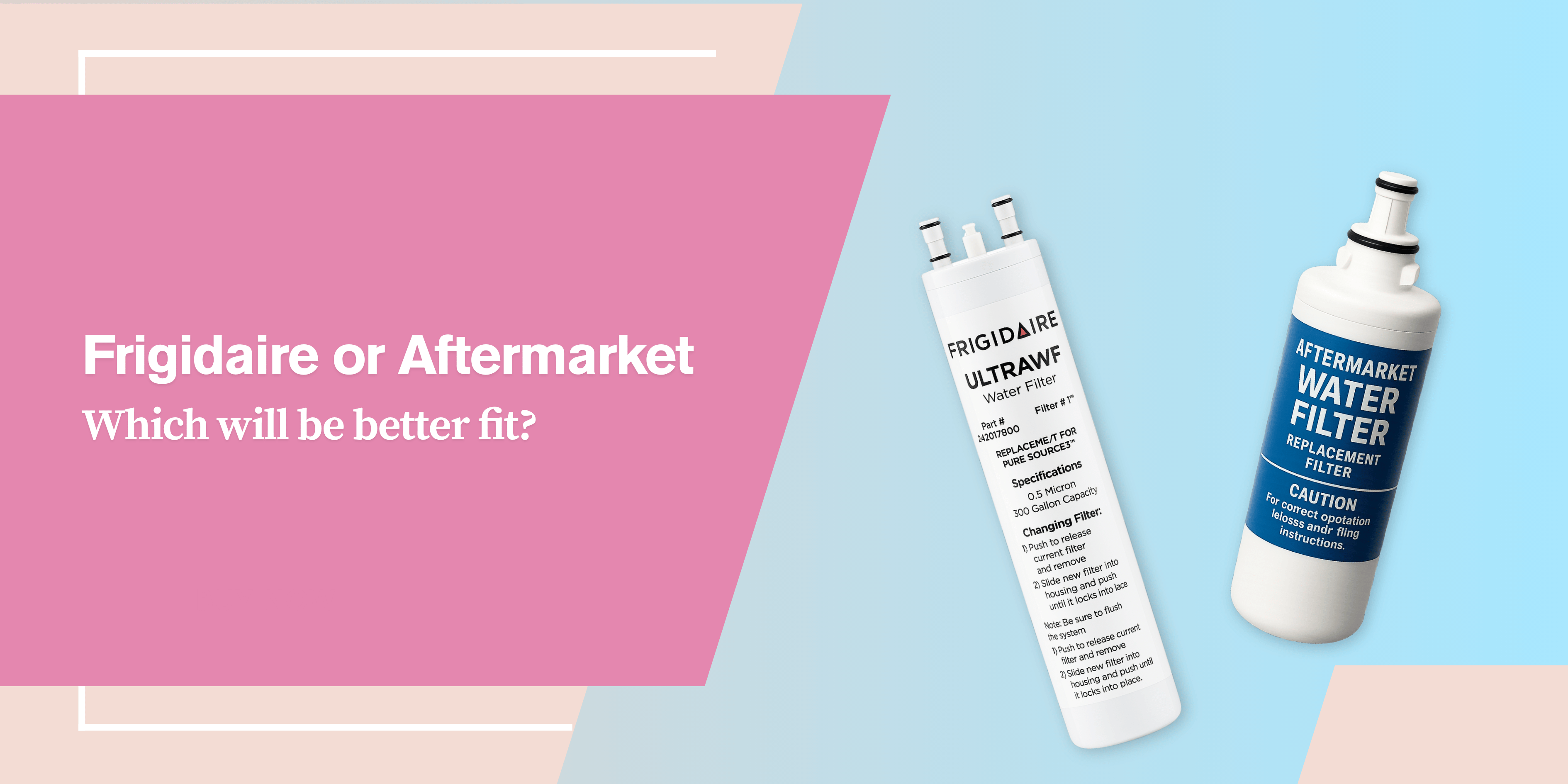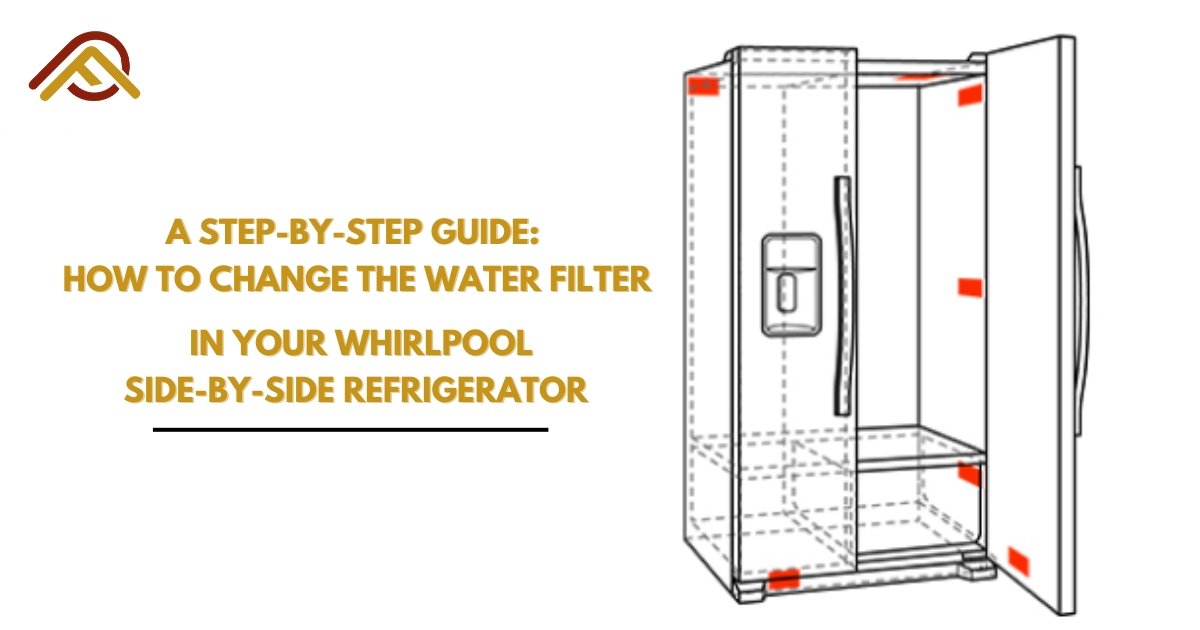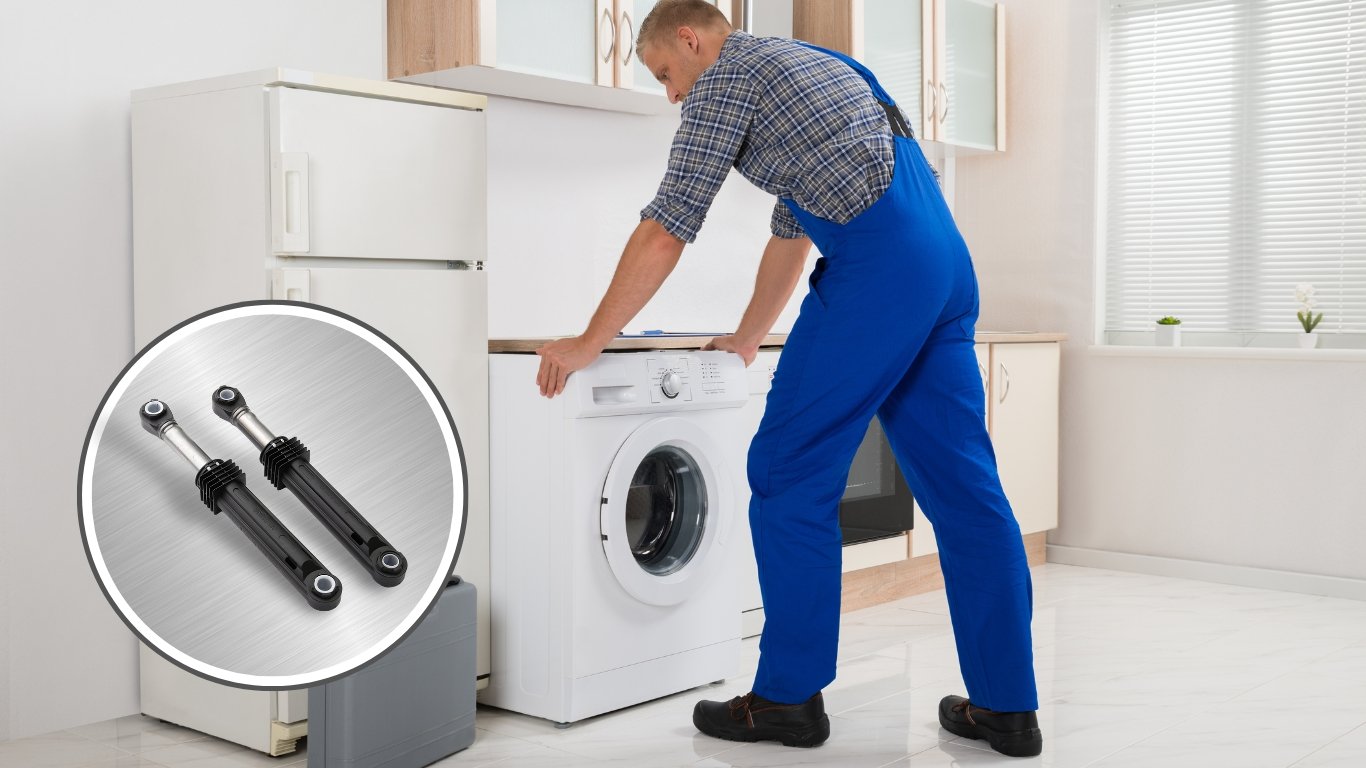
Do Generic Water Filters Work? A Look at OEM vs Aftermarket Filters
, by Tanmoy Das, 7 min reading time
""Free Shipping on USA"" We do not provide any authorization invoice for amazon Resale.

, by Tanmoy Das, 7 min reading time
When it comes time to replace your refrigerator’s water filter, you're often faced with a choice: stick with the OEM (Original Equipment Manufacturer) filter, or opt for a more affordable aftermarket alternative. But does saving a few dollars come at the cost of performance, safety, or fridge warranty? In this post, we break down the pros and cons of each so you can make the best decision for your home and health.
An OEM water filter is made by the same brand that manufactured your refrigerator. For example, the Frigidaire ULTRAWF Water Filter is designed specifically by Frigidaire to fit their refrigerators and meet NSF certification standards.
An aftermarket, or generic, water filter is manufactured by a third-party company not by the brand that made your refrigerator. These filters are typically designed to mimic the size and shape of OEM (Original Equipment Manufacturer) filters, and are marketed as compatible replacements. One of their main appeals is price: aftermarket filters often cost 30–50% less than their OEM counterparts, making them attractive for budget-conscious shoppers.
 However, the trade-off for that lower cost is inconsistent quality and performance. Some aftermarket filters are made by reputable manufacturers and include NSF or WQA certifications, which means they’ve undergone testing for safety and basic contaminant reduction. But many lack any form of certification at all. This means you can’t be sure what the filter is actually removing or if it’s filtering anything effectively.
However, the trade-off for that lower cost is inconsistent quality and performance. Some aftermarket filters are made by reputable manufacturers and include NSF or WQA certifications, which means they’ve undergone testing for safety and basic contaminant reduction. But many lack any form of certification at all. This means you can’t be sure what the filter is actually removing or if it’s filtering anything effectively.
Another issue is the fit and seal. While OEM filters are engineered to lock into place perfectly, aftermarket filters can vary in design, which can lead to poor sealing, water leaks, or restricted flow. They also often lack warranty support, meaning if a generic filter causes damage to your refrigerator or doesn’t perform as expected, you’re left with no recourse. In short, while some generic filters can work well, the overall filtration effectiveness, safety, and reliability vary significantly between brands. Always research thoroughly before choosing an aftermarket alternative.
|
Feature |
OEM Filter (e.g. ULTRAWF) |
Generic / Aftermarket Filters |
|
Certification |
NSF 42, 53, sometimes 401 |
Some are certified, many are not |
|
Contaminant Reduction |
Tested for chlorine, lead, VOCs |
Varies – often only chlorine |
|
Fit and Installation |
Exact fit, zero leaks |
May require adjustments, risk of leaks |
|
Flow Rate |
Designed for proper flow |
May affect water pressure |
|
Warranty Impact |
Maintains warranty |
Might void fridge warranty |
|
Price |
$$$ – higher cost |
$ – budget-friendly |
Yes, some generic or aftermarket water filters can work effectively, especially when they are made by reputable manufacturers and carry proper NSF or WQA certifications. These filters can serve as a cost-effective alternative to OEM options, particularly for consumers who are willing to take the time to research the brand, verify certifications, and review return or refund policies in case something goes wrong.
That said, the quality across generic filters is highly inconsistent. Without certification or transparent testing data, there’s no way to be sure the filter will perform as promised. Even certified aftermarket filters may vary in lifespan, build quality, and ease of installation.
For consumers who prioritize long-term reliability, performance, and peace of mind, OEM filters like the Frigidaire ULTRAWF remain the trusted choice. They're specifically engineered for compatibility, backed by the brand, and independently verified to remove a wide range of contaminants, not just chlorine or taste-related elements.
At PrecipFilter.com, we specialize in OEM water filters like the Frigidaire ULTRAWF, which is:
While aftermarket filters may look the same on the outside, it’s the internal filtration media, build quality, and compliance testing that set OEM apart.
 🛡 Final Verdict: OEM vs Aftermarket
🛡 Final Verdict: OEM vs Aftermarket
|
Scenario |
Best Choice |
|
Prioritizing health & safety |
✅ OEM |
|
Short-term savings with basic use |
✅ Certified Aftermarket |
|
Fridge under warranty |
✅ OEM |
|
Older fridge, out-of-warranty |
✅ Either (cautiously) |
📌 Pro Tip: Always Check Certification Labels
Before buying any filter, look for:
Get the authentic Frigidaire ULTRAWF filter delivered to your door:
👉 Shop Now
✔ Certified Performance
✔ Free Shipping
✔ Trusted by Thousands
Q: What is the difference between an OEM and a generic water filter?
OEM (Original Equipment Manufacturer) filters are made by the brand that manufactures your refrigerator, such as Frigidaire. They are certified, tested, and guaranteed to fit and function properly. Generic filters are made by third parties and may not offer the same level of performance or certification.
Q: Are generic water filters safe to use?
Some generic filters are NSF 42 certified and safe for basic filtration, but many lack the certifications needed to reduce harmful contaminants. Always check for third-party certifications like NSF or WQA before using a non-OEM filter.
Q: Will using a generic filter void my refrigerator warranty?
It can. Many manufacturers specify that only OEM filters are approved for use. If a generic filter causes damage or leaks, your warranty claim may be denied.
Q4: How often should I replace my Frigidaire ULTRAWF water filter?
Every 6 months or after filtering approximately 200 gallons of water, whichever comes first. You may need to replace it sooner if your water has heavy sediment or if your fridge usage is high.
Q: How can I tell if my water filter is NSF certified?
Look for the NSF logo and certification number on the filter or packaging. You can also search the product on the NSF official website.
Q: What does the ULTRAWF filter actually remove from water?
The ULTRAWF is certified to reduce chlorine taste and odor, lead, mercury, VOCs, cysts, pharmaceuticals, and more depending on the certification scope (NSF 42/53/401).
Q: What happens if I don’t replace my water filter?
An old or clogged filter can reduce water flow, affect water taste and odor, and allow harmful contaminants to pass through. It may also lead to buildup inside your fridge’s water lines.
Q: Do all aftermarket filters fit the same as OEM filters?
No. Even slight differences in size or shape can result in poor fitment, leaks, or installation difficulty. OEM filters are made to exact specifications for a proper seal and flow.



